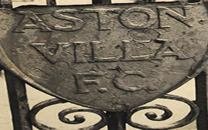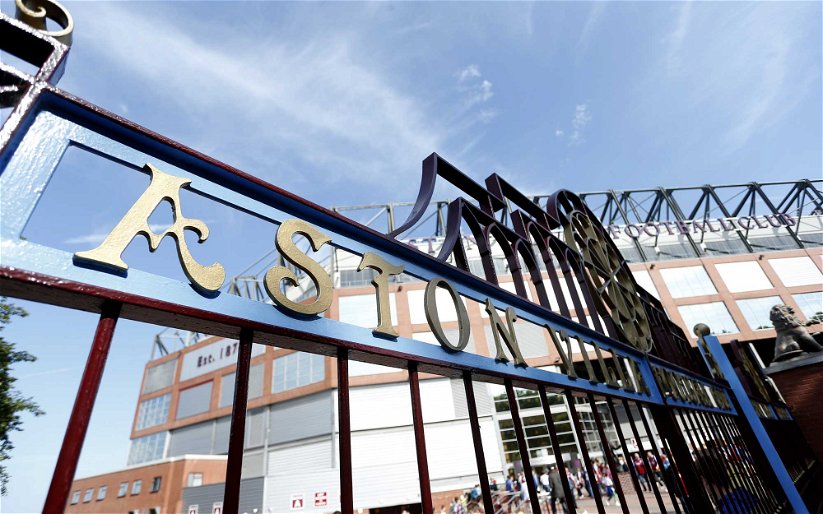I’m told 1874 was a very good year.
I’m told 1874 was a very good year.
I was delighted to get a copy of John Lerwill’s latest book recently, entitled Aston Villa: The First Superclub. It is a cornucopia of information and the sort of thought-provoking facts which tend to send me on journeys of speculative wondering.
What with there being not many Villa reasons to be cheerful these days, I found a lot of pleasure in finding out about that famous meeting between the 15 guys who started the club in 1874. The great thing about John’s book which others seem to lack, is the little details which really set the imagination going.
For some reason, I had always assumed that the guys who started the club were men of a certain age. My vision of them, not discouraged by illustrations I have seen, was that they were gentlemen in their full manhood. So I was totally amazed to find that they were mostly boys, the majority being not even twenty years of age. One of them, William Such, was only fifteen and the oldest Billy Weiss (the singing butcher) was only twenty-two. When it comes to their trades, they were mostly in the Jewellery business and there were a couple of clerks, a whip thong maker and William Scattergood who worked at a brewery.
It is these sorts of detail which fire the imagination and a picture begins to form of Birmingham at the time, which you can’t help adding to, with other odd bits of information picked up over the years to fill out a growing picture of Victorian Birmingham and then beyond. And one thing is certain, those boys must have been a completely different set of chaps to their modern equivalents.
To get any insight into what these chaps and lads might have been like, I think it would require an understanding of the Methodist movement and its role in creating Victorian values and social networks, which helped create many a business and many of the professional football clubs now still in existence. Certainly attitudes towards sport did not escape the influence of Samuel-Auguste Tissot. So given the times, perhaps they were rather more pious, puritanical and jingoistic than your average Holte-ender these days. And if we accept Max Weber’s conclusions they would be rather in favour of a certain sort of strait-laced capitalism – certitudo salutis and all that.
To get an idea of Birmingham of the time, it probably would require a study of the career of Joseph Chamberlain, who started his slum-clearance in 1875 and was trying to provide safe drinking water for a population, 50% of whom were still drinking water from a well, with all the delights of run-off from local cesspits and streets covered with horse-muck. And at the risk of disturbing our ancient idyll further, it wasn’t exactly a peaceable time in Aston back then either, as the Aston Park riots attest.
Even if we assume that poverty and disease were horrendous in the over-crowded slums where Corporation Street was to be, it must have been boom time in the little hamlet of Witton.
From the time George Kynoch built his first shed there in 1862 and had purchased an extra nineteen acres in 1872, the factory grew. By 1882 George Kynoch owned the second biggest ammunition factory in the country and eight-hundred people were employed on the Witton site.
This must have made Witton and Perry Barr the perfect place to build a football club and the Scottish George Kynoch and the growing Scottish contingent at Villa must have shared an empathy which must have been crucial to the growth of the club in those years. It all starts to sound like a Scottish invasion when you start to count up the jocks.
And as Lerwill describes in his book, the prawn-sandwich brigade existed even then, as the well-heeled would drive their carriages up to the ground off Wellington Road and view the games, as from portable corporate boxes.
I have little doubt that Villa benefited greatly from the support of such a fine example of a paternalistic capitalist as George Kynoch. Despite a few problems with the business the site had expanded by another eighty-five acres by the time the football league kicked off in 1888. These must have been heady, optimistic and confident times, for the whole of Birmingham.
It all kind of makes these days seem rather flat and predictable by comparison. Its impossible to imagine what it must have felt like to be a citizen of the undisputed dominant power across the globe.
Apart from the huge transformation which Chamberlain was bringing about in Birmingham and the extension of the vote to all rate-paying British men, the world was in massive flux. The American Civil War had only finished a few years previously, which had redefined modern warfare, the machine gun had been invented and was to be refined by another American, and in the year our Villa boys had their meeting, a patent for barbed-wire was taken out.
The Franco-Prussian war had just ended and Germany had been united into a single country, which began the escalation towards the First World War.
And as if to mark the on-set of another age and to foreshadow the horrendous century to come, in the same November in 1874, when Villa played their first ever game, Winston Churchill was born, two months prematurely, in a bedroom in Blenheim Palace.
So there I was, lounging in my Levis (first produced in 1874) dreaming of Villa as a superclub and very much looking forward to them winning the double in 1897, when I was roused from my musings by being told, Villa had gone up a place in the Premiership without even playing a game, after Wigan lost 3-0 to Newcastle.
Villa are not quite a superclub these days but we have to take our consolations where we can find them.
Keep the faith!

